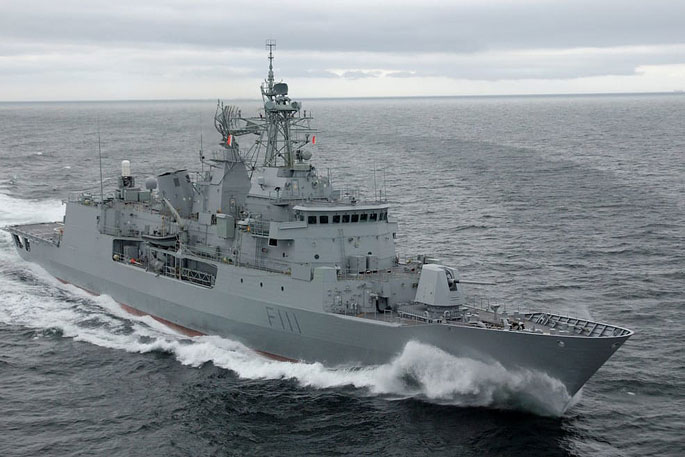New Zealand's Defence Force will ramp up its readiness for combat, taking a more "proactive and purposeful" approach as part of a new government strategy.
High-level documents - published Friday morning - warn current capabilities are "not in a fit state" to respond to increasing security threats and the impacts of climate change in the region.
Unveiling the new direction at Parliament, Minister of Defence Andrew Little told guests New Zealand is facing more geostrategic challenges than it has in decades.
"The changes in the domestic and international security environment mean our response and preparedness must change too."
Little says the government will improve the effectiveness of combat and other military capabilities, ensuring the Defence Force can act "early and deliberately" in protecting the interests of New Zealand and the surrounding region.
"We must be prepared to equip ourselves with trained personnel, assets and material, and appropriate international relationships in order to protect our own defence and national security - and we are."
The documents come as part of a Defence Policy Review commissioned by the government a year ago and chaired by Sir Brian Roche.
The resulting 37-page Defence Policy Strategy Statement concludes there is a need for "a combat-capable, credible, deployable force" ready to respond when and where required.
"Defence will need to act earlier to prevent threats, for example through increased presence, as part of broader New Zealand efforts and in concert with international partners.
"Where possible, Defence will seek to act to constrain hostile actions, will be prepared to employ military force, and engage in combat if required."
New Zealand's security was assured by the collective strength of a network of partners to which the country needed to offer "operationally credible" contributions, says the statement.
"Our region is now a strategic theatre, and New Zealand needs a defence posture that reflects this reality... Defence must be able to defend, if necessary, New Zealand's sovereign territory and maritime interests."
A primary goal will be preventing states that don't share New Zealand's values from establishing a military or paramilitary presence in the region.
The report identified the Chinese government's efforts to increase its "political, economic, and security influence" in the Pacific as a potential risk to regional security.
"The relationship with China is significant for New Zealand, and its cooperation will continue to be essential in addressing many global challenges. At the same time, the Chinese government's assertive pursuit of its strategic objectives is the major driver for the new era of strategic competition among states.
"An increasingly powerful China is using all its instruments of national power in ways that can pose challenges to existing international rules and norms.
"Beijing continues to invest heavily in growing and modernising its military, and is increasingly able to project military and paramilitary force beyond its immediate region, including across the wider Indo-Pacific."
A related document - titled Future Force Design Principles - says the current Defence Force has been designed for a "relatively benign strategic environment".
"As a result, it is not in a fit state to respond to future challenges," the report says.
"A more challenging environment means that the Defence Force will be called upon more often, and personnel must be ready, equipped, and trained for a range of contingencies including armed conflict, humanitarian assistance, and disaster relief."
National security strategy
Little also unveiled New Zealand's first 'National Security Strategy' with directions to the intelligence community on how to navigate the changed environment.
"Kiwis want to know more about the national security challenges we face, and crucially they want to be part of the discussion about how we can address them," Little says.
The document also highlights the wider Indo-Pacific region as the centre of strategic competition with potential flashpoints located in Taiwan, the South China Sea and East China Sea.
"North Korea continues to destabilise the Korean Peninsula. In any of these instances, even tensions that fall short of full conflict could have unpredictable but significant impacts on trade and supply chains, with global effects, including for New Zealand and the rules-based international system."
China has become more assertive in the region and efforts to develop ports and airports bring the possibility of dual-use facilities for both civilian and military purposes, says the document.
"The 2022 China-Solomon Islands security agreement and ongoing attempts to create new groupings in the Pacific demonstrate China's ambition to link economic and security cooperation, create competing regional architectures, and expand its influence with Pacific Island countries across policing, defence, digital, and maritime spheres."
The 'National Security Strategy' sets out major initiatives through to 2025, including commitments to publish an annual overview of threats along with a ministerial speech.



0 comments
Leave a Comment
You must be logged in to make a comment.